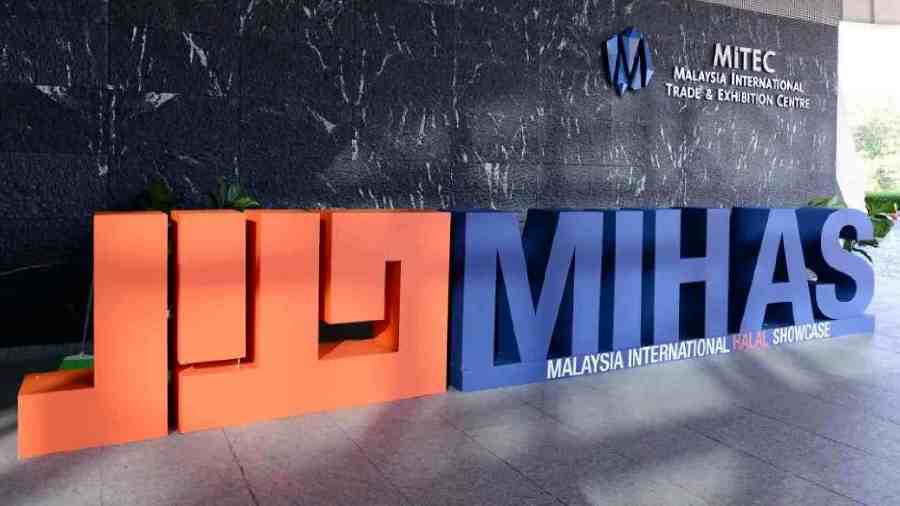LONDON: The concept of women’s “modest fashion” is well established in the retail world, with a plethora of international start-ups tapping into growing demand from modern Muslims across the globe. But this year will see men’s modest fashion come to the fore for the first time, experts have said.
Romanna bint Abu Baker, founder of London Modest Fashion Week (LMFW) and owner of modest fashion marketplace Haute Elan, said male fashion brand Jubbas will make its debut on the catwalk at LMFW in February this year. Ten thousand visitors are expected to stump up the $142 two-day entrance fee to view 40 international collections at the event, she said.
Modest fashion is gaining mainstream interest across the board, with several retailers and brands such as Dolce & Gabbana, Uniqlo and Burberry entering the industry and several notable investments driving the sector forward, including Qatar’s Mayhoola investment fund buying French luxury label Balmain and crowdfunding being used to develop a climate-adapting hijab. As the sector gains traction, spend on clothing and apparel from Muslims is projected to reach $368 billion by 2021 – and some of this spend will be driven by males.
Akil Desai, the founder of Blackburn-based Jubbas, told Arab News his company would showcase an extensive collection of tailored “jubbas” (kandoras), prayer hats and mens’ scarves (shemaghs).
Desai said his shops have witnessed increased demand for male garments as Muslim men seek out “traditional but contemporary” clothes. “They want to respect their faith but they want to fit in, so they are looking traditional clothes with a modern feel,” Desai said.
The Jubbas owner founded his firm just five years ago but has already grown the brand’s bricks-and-mortar presence to three stores in Blackburn, London and Bolton, with plans to open more in Preston, Liverpool and Manchester.Desai said his male customers range between the ages of 14 to 55 years. “The younger customers tend to go for the more modern designs, like our denim kandora. The older men, above 45 years, prefer traditional garments,” Desai said. “Interestingly, comfort is very important and Muslim men are realizing that it’s easier to slip on a kandora than to worry about matching trousers or finding a belt.”
The Jubbas owner said Muslim men often seek out his stores for evening dress. “We offer kandoras with lots of detail at affordable prices, so instead of going to a tailor, they come to us.”
According to Desai, Jubbas sold 20,000 garments in 2017 and expects to sell 29,000 garments in 2018. Around 70 percent of the store’s purchases are for men, he said.
“We have started a trend where they [Muslim men] feel comfortable wearing the kandora and don’t feel out of place in society because it’s very modern. It’s traditional but they can blend in and look cool. Our price point is also affordable,” Desai said.
“In a way, it’s like making a statement. Men want to identify as Muslims,” Desai added.
The Jubbas owner announced he is going into retail store partnership with Bint Abu Baker’s Haute Elan brand across his upcoming northern UK stores. “Together we can offer a ‘one stop shop’ for Muslim families who want purchase garments for men, women and children,” he said.
Bint Abu Baker agreed that modest menswear is likely to take off in 2018. “One reason is that some men want garments or jumpers that cover their rear. They also like the modesty of the prayer cap,” she said. “On the other hand, it’s becoming fashionable among Muslims to dress as Muslims. There’s an emerging pride to be a Muslim… it’s a statement of identity.”
However, one major UK-based modest fashion brand owner, who asked to remain anonymous, told Arab News that male modest fashion is “most likely a fad.”
He said: “Our company has plans to diversify from female fashion, into halal perfume and even homewares, but menswear, no…”
The source added: “Modest menswear is a bit of a gimmick. When something is in vogue, people tend to want to jump on the bandwagon. And while the modest fashion industry has real legs on it, (male modest fashion) seems a bit opportunistic. They would need a very compelling proposition to make it in the market.”



